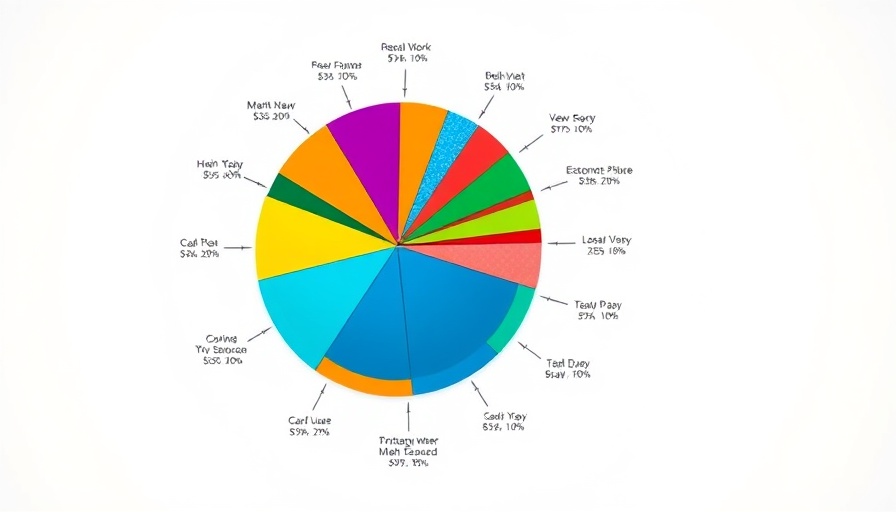
The Future of Data Visualization in Digital Marketing
As we march towards 2025, the dynamism of the digital marketing landscape continues to evolve at breakneck speed. Among the many trends containing great potential is the powerful role of data visualization statistics. Businesses are increasingly grasping the significance of presenting complex data in a visually engaging manner. In fact, it's projected that organizations leveraging data visualization can require 10 times less time to deliver statistical reports to stakeholders. This highlights not just the efficiency but also the necessity of effective data communication in our information-rich world.
Why Data Visualization Matters Now More Than Ever
With an estimated 2.5 quintillion bytes of data created each day, making sense of this information deluge has become a pressing challenge for professionals across different sectors. Here's where data visualization emerges as a hero, simplifying the comprehension of complicated datasets. In reports, stakeholders will no longer be burdened with sifting through rows of numbers; rather, they'll engage with compelling visual narratives that drive better decision-making.
Key Statistics That You Can't Ignore
While data visualization is crucial, knowing the compelling statistics around its usage can help frame its importance. Reports show that:
- Visuals are processed 60,000 times faster than text.
- People remember 80% of what they see, compared to 20% of what they read and 10% of what they hear.
- Nearly 90% of the information transmitted to the brain is visual.
Incorporating these insights into your data strategy serves not only to capture attention but also significantly improves retention and understanding.
Data Visualization Tools: Making Complex Simple
In our journey to 2025, leveraging the right tools can be a game changer. Take Tableau and Power BI, for example. Both transform raw data into comprehensible visual formats that allow businesses to tell their stories effectively. Integrating these tools into your digital marketing strategies provides a robust foundation for developing insights into customer behavior and engagement strategies.
Overcoming Common Challenges in Data Visualization
While data visualization offers many benefits, it’s essential to acknowledge common pitfalls that practitioners must avoid. Common misconceptions include:
- Assuming more data equals better insights.
- Neglecting the importance of choosing the right visualization techniques.
- Failing to ensure accessibility in visuals for all audience segments.
By steering clear of these obstacles, marketers can create impactful, engaging visual content that resonates with diverse audiences.
Actionable Insights for Your Marketing Strategy
Incorporating data visualization into your marketing campaigns can significantly improve engagement and conversion rates. Here are some actionable steps to consider:
- Utilize infographics in social media content to boost shareability.
- Create dashboards that allow team members to visualize key metrics in real time.
- Employ A/B testing to determine which visual formats yield better results.
Integrating these approaches enables marketers to adopt data-driven methodologies, optimizing their campaigns for better performance.
Conclusion
As we gear up for the digital marketing trends of 2025, embracing data visualization as a core strategy will undoubtedly provide businesses with a significant edge over the competition. Adapting to the visual-centric communication models will not only improve internal operations but also enhance customer interactions and experiences.
Whether you are a seasoned marketer or just starting, understanding these statistics and trends will position you for success. Take the plunge - prioritize data visualization in your strategies today to lead the charge in tomorrow’s digital marketing landscape.
 Add Row
Add Row  Add
Add 




Write A Comment